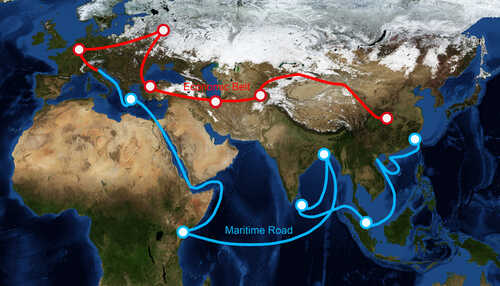
(PresidentialHill.com)- A new study found that by the end of 2021, China gave $240 billion in loans to bail out 22 countries participating in its Belt and Road Initiative.
According to the study, published by William & Mary University’s research lab AidData on Tuesday, the $240 billion spent by China is more than 20 percent of the lending from the International Monetary Fund over the last decade, with nearly 80 percent of the $240 billion extended over the 5 years from 2016 to 2021.
However, China’s lending, which averages a 5 percent interest rate versus the 2 percent interest the IMF offers, goes almost exclusively to countries participating in the Belt and Road Initiative.
China’s Belt and Road Initiative is a multibillion-dollar worldwide infrastructure development operation. It has long been criticized for leaving host countries with crushing debt, using Chinese labor instead of local workers, and ignoring the environmental impact of the projects on local communities.
When participating countries are unable to repay the Belt and Road loans, China seizes assets that will expand its military and strategic reach.
According to the study’s authors, China doesn’t bail out every distressed borrowing country. Instead, it will offer debt restructuring plans to low-income borrowers without providing additional funds. Middle-income borrowers, like Argentina, Egypt, Pakistan, Ukraine, and Venezuela will receive debt restructuring plans and additional money.
The study’s authors also noted that China’s central bank uses its global swap line to service debts, which has made it harder to monitor “debt vulnerabilities in the developing world.”
Around 70 percent of the $240 billion bailout was done through the global swap line from China’s central bank, according to the study.
According to the study’s co-author Christopher Trebesch, from Germany’s Kiel Institute for the World Economy, the findings of the study “have implications for the global financial and monetary system” which is already growing less transparent and less institutionalized.
During a press briefing on Tuesday, State Department spokesperson Vedant Patel said China’s Road and Bridge Initiative often saddles participating countries with “bad debt” leaving the local workforce unable to reap the “economic benefits” from the projects.














